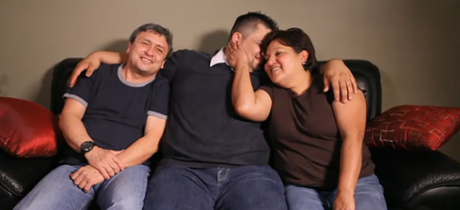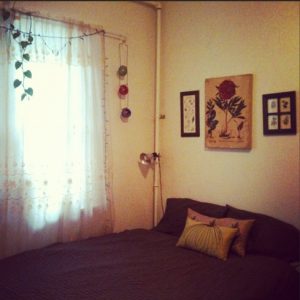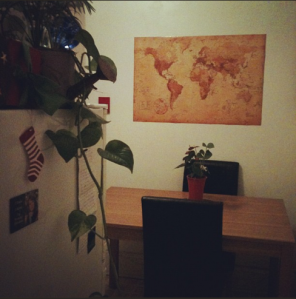
The documentary "Generation Boomerang" explores the wider implications of what happens when adult children just won't leave the roost. (CBC)
Watch the full documentary here. (Runs: 45:11)
GENERATION BOOMERANG examines why so many of today’s young adults are slow to launch. The reality is that getting ahead today requires post-secondary education, leaving many young people heavily in debt. And finding a job is tough. In Canada, the unemployment rate for 15 to 24 year olds sits at 14% — double what it is for the general population. But those aren’t the only reasons young adults are choosing to remain under mom and dad’s roof. After a childhood of overprotection, overindulgence, over-everything, many of today’s 20 and 30 somethings are finding the real world just a little too real. Why share a dingy basement suite with 3 roommates and eat macaroni, when you can live in a comfortable renovated basement and eat mom’s pasta primavera? And parents? Many are just fine with the arrangement, because they consider their kids their friends and like having them around. And they are quick to come to the rescue whenever they see their offspring headed for adversity.
Is this trend a good thing or is it creating a generation of Peter Pans who will never grow up? Several experts weigh in, including Sociologist Richard Settersten, co-author of Not Quite Adults: Why 20 Somethings Are Choosing a Slower Path to Adulthood; Psychologist Jeffrey Arnett, author of Emerging Adulthood: The Winding Road From The Late Teens Through The Twenties; Social Psychologist Jane Adams, who spends much of her time coaching boomer parents on how to deal with their adult children; and Christina Newberry, whose book and website The Hands On Guide to Surviving Adult Children Living at Home offer tips and advice for parents on how to establish a workable living arrangement with their adult children.
———————————————————————————————————-

A room of my own. (Fabiola Carletti)
My father wants me to come home. He thinks I live in a sort of self-imposed purgatory.
He visits my small bachelor apartment in downtown Toronto, absent-mindedly opens my barren cupboards, and turns to me with a concerned look on his face.
“Are you sure you like living by yourself?” he asks.
As the 26-year-old, unmarried daughter of Salvadoran immigrants, I am an anomaly. I have travelled across Canada, gone away for school, and have returned to my home city only to settle downtown on my own.
Growing up, I saw my parents struggling as new Canadians and I knew, from a very young age, that I wanted to ease the burden on them. I take pride in my independence. I funded my own education. I pay my own rent without help. I save so that I can support them when they need it later in life.
(Please don’t mistake this for bragging. I know how lucky I am, and I don’t take any of it for granted. Everything is half chance. Everything can change at any time.)
But my dad has a different take on it. He doesn’t seem me as a burden. I’m the kid that got away. For him, there’s no shame in coming back.
He frequently reminds me that there’s room for me at home, where my younger sister, younger brother and three male cousins live. He would love to have me around — eating food, using water, living rent-free — despite his own ballooning debt. It’s a whole other framework.

My little kitchen. (Fabiola Carletti)
That’s why, for me, it was kind of amusing and odd to watch the Generation Boomerang documentary. Although they profile Hispanic and Italian families that expect their kids to stay home, the so-called ‘norm’ was still centered on white, middle class families that are a little alarmed at their adult children’s ability to hang on — even if they can financially support them.
Jane Adams and Paul Lermitte, for instance, have told their sons that they must go forth and prosper by the age of 25.
I highly recommend you watch the 45-minute documentary and consider some of the nuances. Yes, there are young adults who could use a reality check and some tough love, but there’s more to it than that.
My generation is facing an entirely different economic reality — a rising cost of living, fewer job prospects, and an eroding social safety net. We are graduating with record debts, delaying major life decisions, and longing for things as ill-defined as self-fulfillment and happiness. (I have no job security as a casual at the CBC, and if the shifts stop coming, it wouldn’t be long before I’d consider packing my bags.)
But with all its challenges, this is our time.
I hope people at least understand our complex inner lives and outer circumstances before writing off all adult kids who stay home as “Bamboccionis” (big babies) or “Yuckies” (Young, Unwitting, Costly Kids).
Although I am out on my own for now, and proud of it, I am also grateful that going home is truly an option. As the German poet Christian Morgenstern once wrote, “home is not where you live, but where they understand you.”
Advertisement